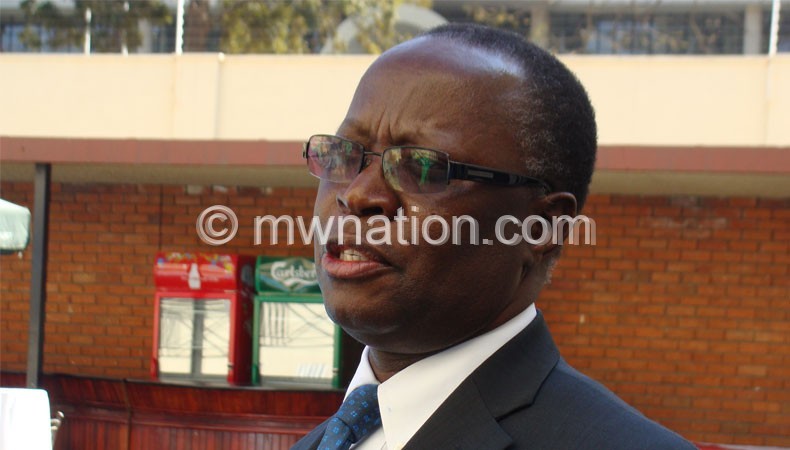RBM raises bank rate, now at 25%
Reserve Bank of Malawi (RBM) has revised upwards the bank rate or policy rate by 2.5 percentage points, barely three months after reducing the rate by the same margin.
RBM Governor Charles Chuka, who also chairs the Monetary Policy Committee (MPC) of the central bank, announced on Friday that the bank has reverted to a 25 percent policy rate from 22.5 percent rate effected on July 9 2014.

The hiking of the bank rate—the rate at which commercial banks borrow from the central bank as the lender of last resort—comes at a time authorities are battling a high inflation rate of 23.7 percent as of September 2014, according to National Statistical Office (NSO).
Economic analysts believe the skyrocketing inflation rate could be tamed by a rise in interest rate as it deters cheap borrowing, which induces excess liquidity on the market.
“In view of the foregoing, the [Monetary Policy] Committee decided to increase the policy rate back to 25 percent and to review the position at the next meeting,” said Chuka.
The bank rate was static at 25 percent for almost two years before a downward revision in July this year.
The rate is a key monetary policy tool used to stabilise the currency movement and manage high inflation rates, among other macroeconomic indicators.
Chuka said RBM observed that inflation outcomes for the second half of 2014 have generally been higher than during the second half of 2013.
Looking ahead, the RBM governor said inflation rate is expected to accelerate to 25.4 percent in December 2014, largely due to rising food prices and the depreciating kwacha, which is officially trading at close to K500 to a dollar in authorised dealers banks (ADBs).
Chuka said inflation rate is expected to turn the corner beginning March 2015 as a result of the expected seasonal appreciation of the kwacha and improvements in the food supply situation.
The rate of inflation decelerated to 23.7 percent in September 2014 from 24.5 percent in the preceding month buoyed by slowdown in both food and non-food prices.
On the recent sudden kwacha deprecation, Chuka admitted that the local unit has continued to depreciate faster than anticipated, largely reflecting continuing uncertainty regarding the resumption of donor flows.
He also attributed the massive fall in the value of the currency to increasing liquidity due to government borrowing from the central bank and the recent negative returns to kwacha holdings.
The kwacha has plummeted from K393 to a dollar a couple of weeks ago to sell at around K490 as at the weekend in most commercial banks, a situation which has triggered panic in the foreign exchange market as there is uncertainty over availability of enough foreign exchange.
This is coming at a time the market for tobacco, a crop that wires in around 60 percent of foreign exchange, closed and donors freezing budgetary aid.






Kodi a nation news paper nkhani za thoko banda simukulemba bwanji? is it a policy? kumangolemba zabwino zokhazokha zokhuza family members?